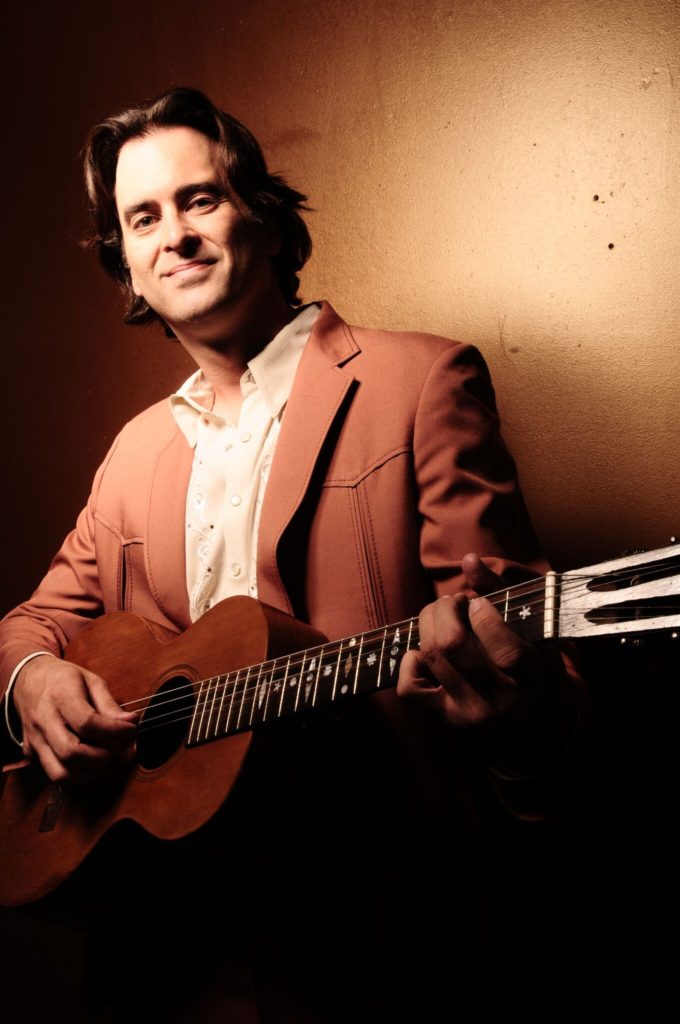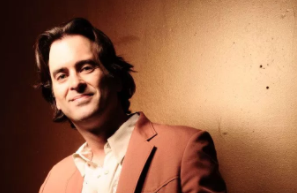 The first piece Peter Cooper wrote for a newspaper was in college, when he was asked to write a review of country singer Guy Clark. The last piece he wrote for a newspaper was Guy Clark’s obituary earlier this past year. The History of Country Music professor, Senior Director, Producer and Writer at the Country Music Hall of Fame and Museum, reporter, singer, songwriter and producer knows all there is to know about the genre of country music.
The first piece Peter Cooper wrote for a newspaper was in college, when he was asked to write a review of country singer Guy Clark. The last piece he wrote for a newspaper was Guy Clark’s obituary earlier this past year. The History of Country Music professor, Senior Director, Producer and Writer at the Country Music Hall of Fame and Museum, reporter, singer, songwriter and producer knows all there is to know about the genre of country music.
A growing love for country
Cooper, a South Carolina native, attended high school in the Washington D.C. area. It wasn’t until his fifteenth birthday when he first heard country and bluegrass music, when he went to hear a progressive bluegrass band called The Seldom Scene perform at the Birchmere, a Washington D.C. music club. Cooper was instantly hooked, and as soon as he got his driver’s license, he started going to the Birchmere every week. He found the musicians he saw there to be relatable.
“It was neat because very young I got to see people making music, and they were people you could talk to,” Cooper said. “I got a sense that the kind of music you were making is impacted by the kind of person you are, that it’s reflective of personality and experience.”
Music journalism career
When Cooper was a senior at Wofford College, a professor who regularly wrote for a weekly paper in Asheville, North Carolina got sick one week and asked Cooper to write a review of Guy Clark for him. Clark was one of Cooper’s favorite songwriters, and he accepted the job––his first assignment for a newspaper.
“journalists are often being pushed to write four, five of those eight-inch stories instead of putting together something meaningful.”
After graduating from college, Cooper continued writing about music for small weekly papers while teaching middle school in Spartanburg, South Carolina. He also wrote a book, “Hub City Music Makers: One Southern Town’s Popular Music History,” about music from upstate South Carolina. A staffer at the Spartanburg newspaper read Cooper’s book and offered him a music writing job there. In 2000, Cooper moved to Nashville to take a position writing about music at The Tennessean.
Throughout his music journalism and performing career, Cooper has met many of country music’s significant names, including Johnny Cash, Ray Charles, Merle Haggard and George Jones. He wrote Jones’ tombstone when he passed away in 2013. After Taylor Swift was highly criticized for her performance at the 2010 Grammy Awards, Cooper wrote a column for The Tennessean defending her performance. Cooper even believes that this column may have played a role in inspiring Swift to write her song “Mean.”
Cooper values the opportunity to write about great music makers like this who aren’t famous, but have great stories to tell nonetheless. Several years ago, Cooper wrote a story for The Tennessean about Doug Seegers, a homeless street singer who was discovered by a foreign television crew. Seegers went on to become the most popular country music artist in Sweden after his segment aired, eventually sharing stages with Neil Young and singing on an album with Emmylou Harris.
In modern journalism, where many publications focus on clicks and online metrics, Cooper stresses the importance of artful writing.
“There’s also a tendency now to write a lot of quick-hit pieces, publish three newsy bits during the day online, but that can be at the expense of impactful writing,” Cooper said. “I’d be hard-pressed to tell you about an extraordinary eight-inch story that I read. I don’t know that they exist. And journalists are often being pushed to write four, five of those eight-inch stories instead of putting together something meaningful.”
Performing career in country music
While writing for The Tennessean, Cooper pursued a music career of his own. He plays acoustic guitar and sings, and has self-produced and recorded seven albums of his own original music. He was nominated for a Grammy in 2012 for co-producing the album “I Love: Tom T. Hall’s Songs of Fox Hollow.”
He has performed everywhere from the Ryman Auditorium to the Family Wash, a small club in East Nashville. Although he considers himself a mediocre bass guitar player, Cooper played bass on The Tonight Show and The David Letterman Show with friend Todd Snider, an Americana and folk singer.
As a performer, Cooper prefers venues where the crowd is seated, noting that audiences behave differently when standing. He also finds it easier to perform for larger audiences.
“Weirdly, in sports the higher level you go to, the harder it gets. You know, it’s harder to play in the NBA than it is to play in high school. Competition is so much greater, “ Cooper said. “In music, the bigger places that would seem more intimidating, they’re actually much easier to play. It’s much easier to play Carnegie Hall than it is to play the Five Spot, because people walk in with the expectation of something, you know, they’re there to see the show.”
Current career
Cooper works at the Country Music Hall of Fame and Museum in downtown Nashville as senior director, producer and writer. Each day is different – Cooper’s responsibilities range from doing public interviews with musicians and producers to planning exhibits for the museum to hosting performances. Most recently, Cooper planned the Medallion Ceremony, where Randy Travis, Fred Foster and Charlie Daniels were officially inducted into the Hall of Fame.
“If I were teaching U.S. History I wouldn’t be able to give any firsthand stories about Abe Lincoln, but I can give these students a sense not only of Johnny Cash and Kris Kristofferson and Taylor Swift, not only of what they did, but of who they are.”
Several years ago, Cooper began teaching the History of Country Music course at Vanderbilt. He was offered the position by Dean Mark Whites of the Blair School of Music and has taught it each semester since. History of Country Music is available to students in all colleges and counts as an AXLE U.S. History requirement. When teaching the class, Cooper focuses on firsthand stories of the people who created the history of country music.
“If I were teaching U.S. History I wouldn’t be able to give any firsthand stories about Abe Lincoln,” Cooper said. “But I can give these students a sense not only of Johnny Cash and Kris Kristofferson and Taylor Swift, not only of what they did, but of who they are.”
Cooper encourages his students to explore their city and its music.
“Every night of the week, there’s world-class talent on these stages, and you can get into these places for five to ten dollars.” Cooper said, “If you’re bored on a Thursday night you can take [an Uber] down to the Station Inn and hear something that’ll blow your mind, the same way it blew the mind of Dierks Bentley when he was a Vanderbilt student. Just walk through the doors of that little place and expand your horizons.”
Currently, Cooper is finishing an album that he co-produced and co-wrote with friend Thomm Jutz and 91-year-old Country Music Hall of Famer Mac Wiseman. The album is a musical memoir of Wiseman’s life, with songs drawn from his life experiences that span the history of country music.
Views on country music trends
Cooper emphasizes that the music featured on country radio doesn’t encapsulate the genre of country music.
“While there may be times when I wish for more depth and texture on the radio, I have the entirety of recorded popular music at my fingertips now thanks to the Internet.”
“I think the direction of country music and the direction of the country radio format are two very different things,” Cooper said. “And while there may be times when I wish for more depth and texture on the radio, I have the entirety of recorded popular music at my fingertips now thanks to the Internet.”
He points to Chris Stapleton, who was relatively unknown before winning three awards at the 2015 CMA Awards, as an incredible performer and talent in country music despite his music not being popular on the radio.
“Radio programmers still haven’t picked up on him,” Cooper said. “A week before the CMA show where he was revealed to the world as a performer of merit and consequence, I was told by a radio programmer that he would never get played on the radio because he didn’t test well with young females.”
In the digital music era, Cooper still prefers to listen to music on vinyl, with a quality turntable and sound system. He appreciates the intentionality of this format – opening the record jacket, placing the album on the turntable, and placing the needle on the vinyl require one to feel investment and ownership in the process.
“Distraction is the enemy of art,” Cooper said. “If you’re listening [to music] on your computer while emails are popping up, or on your phone and there’s various things going on, and one of them is music, that music is never gonna hit you as hard as if you were listening with intent.”



